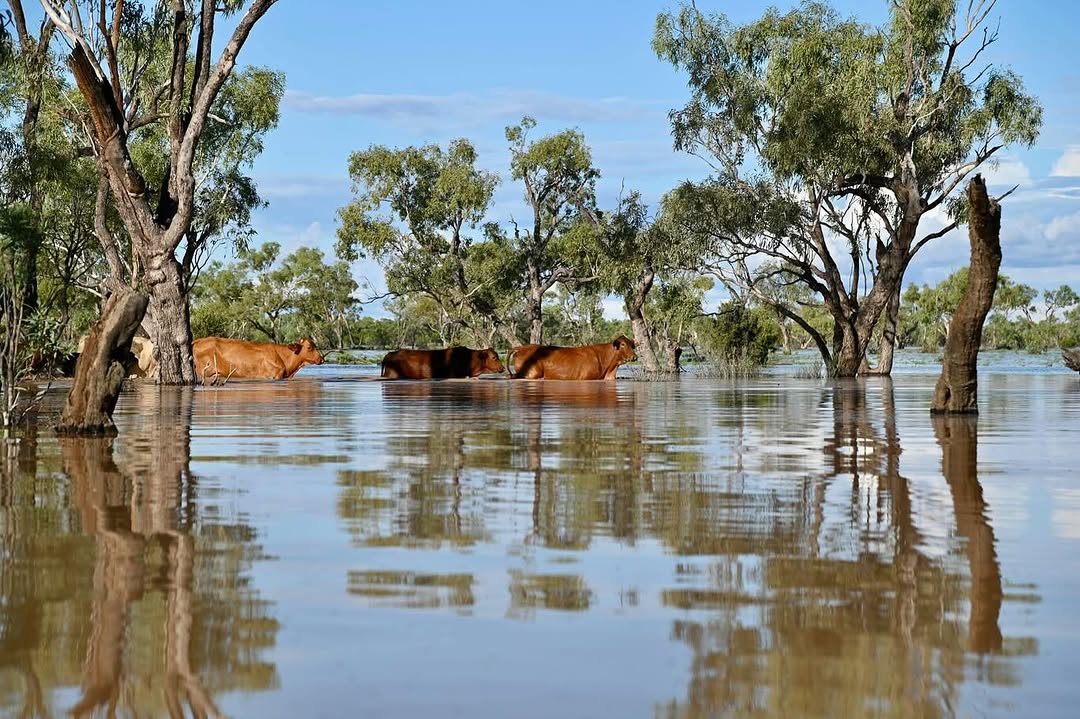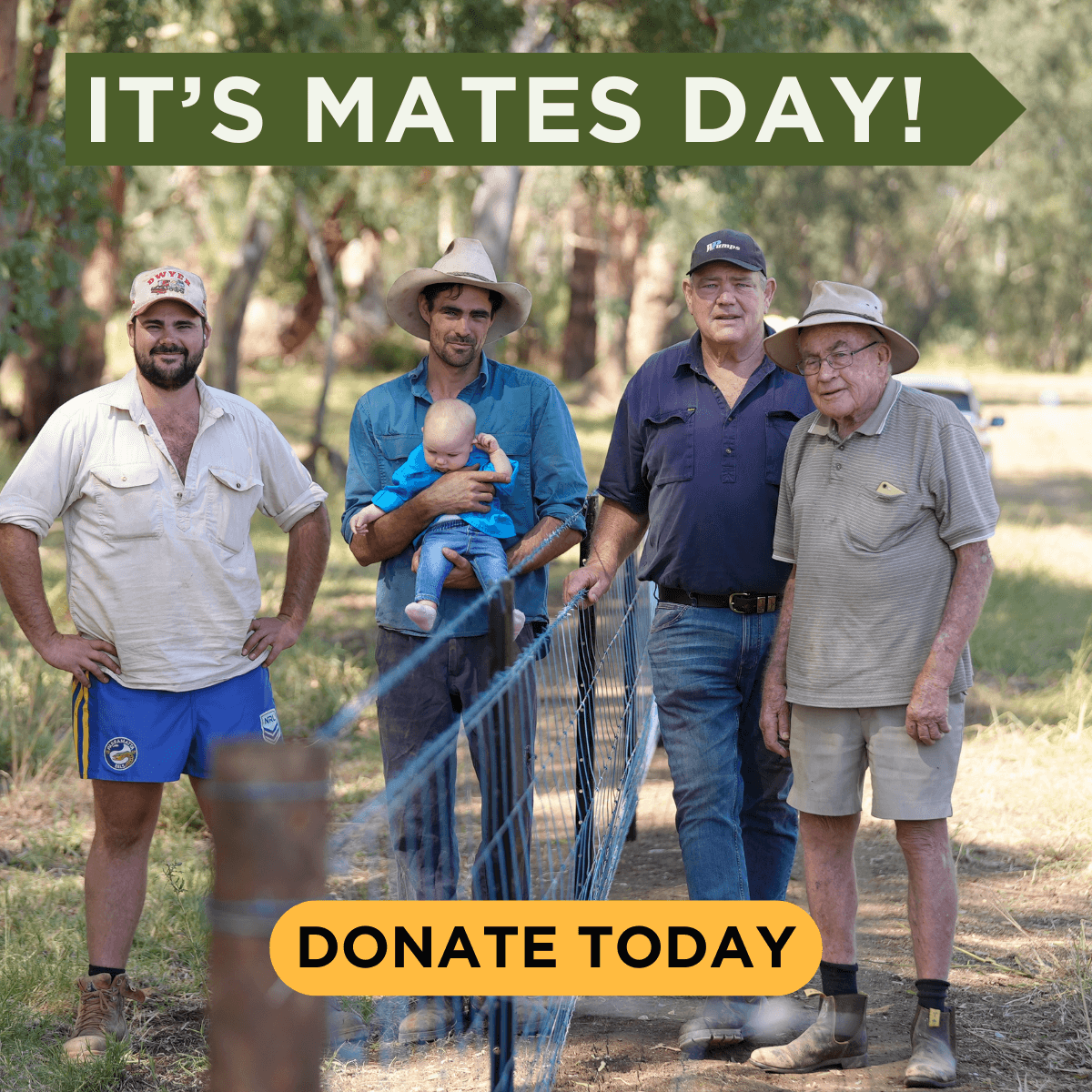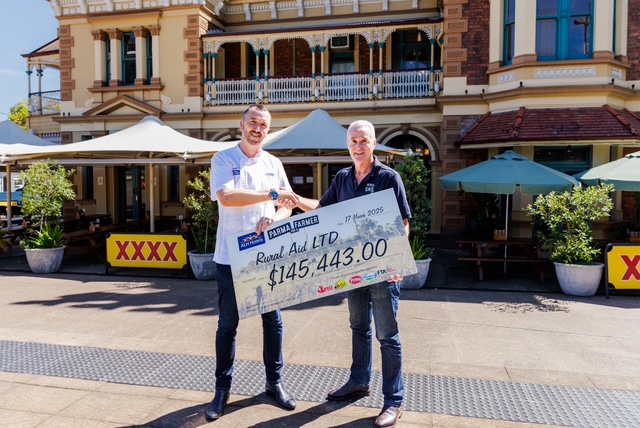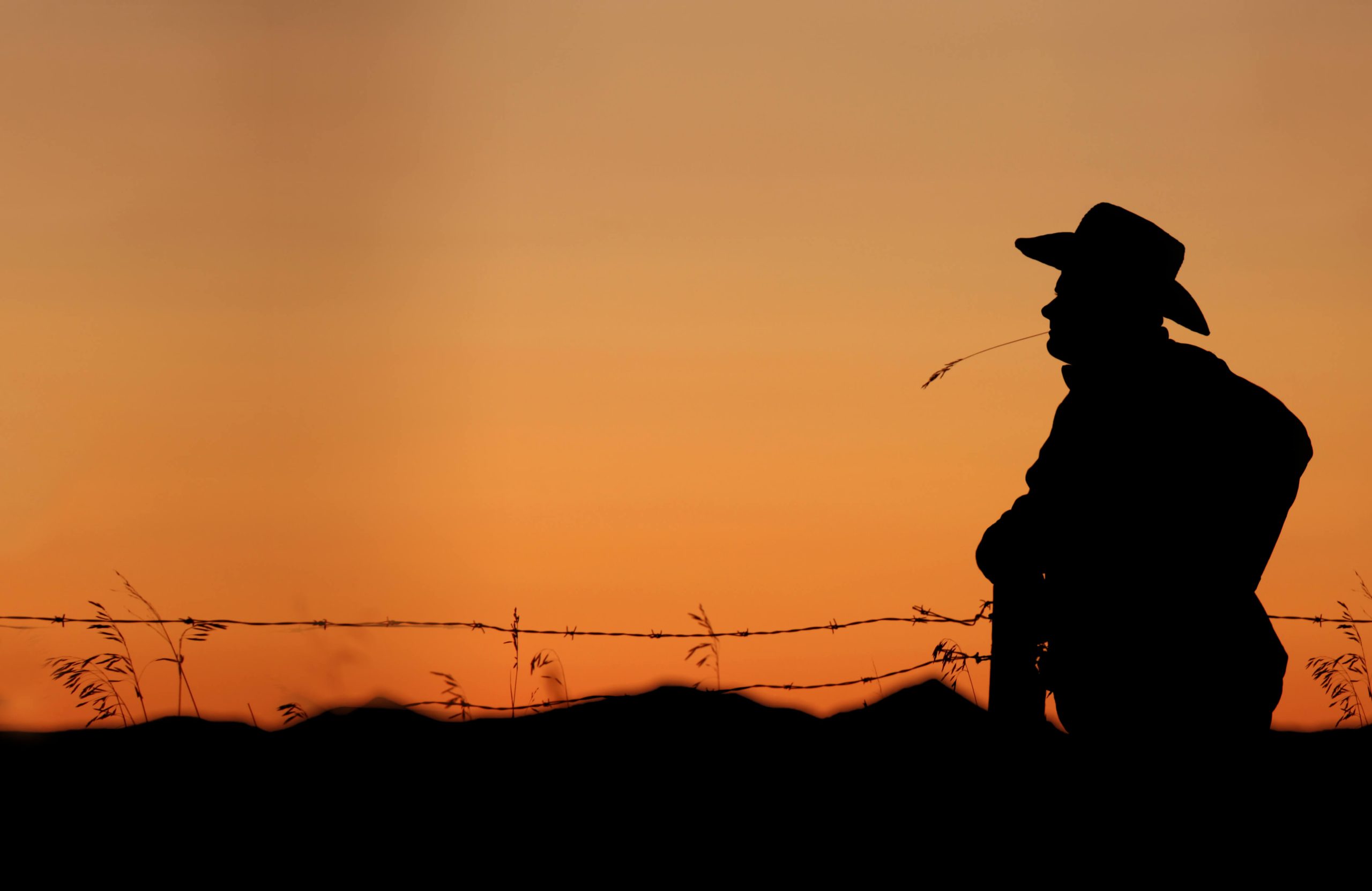Rural Aid Delivers Urgent Lifeline to Queensland Farmers Amid Devastating Floods
Queensland is currently grappling with severe flooding, with record-breaking rainfall inundating large parts of the state. Major flood warnings have been issued for multiple rivers, including the Thomson, Barcoo, Bulloo, Paroo, and Warrego, as water levels continue to rise. Vast areas of western and central Queensland have been submerged, with floodwaters surpassing levels seen during previous major flood events.
The devastating impact on agriculture has been immense, with a significant number of livestock lost and much of the farmland destroyed. Stock losses are expected to reach into the hundreds of thousands, compounding the already difficult conditions caused by ongoing droughts. This disaster has left farmers across these affected regions in urgent need of support to recover from the extensive damage and ensure the survival of their remaining livestock.
Rural Aid has swiftly mobilised to deliver critical relief to affected farmers. In collaboration with the Queensland Government, Rural Aid is ensuring that resources and aid are being directed to the most impacted areas. A key initiative has been the airlifting of bales of hay by helicopter to farmers who have been cut off by the floods. These airlifts provide essential sustenance for stranded livestock, which is a lifeline for farmers unable to transport feed due to the devastating conditions.
Beyond immediate food relief for livestock, Rural Aid is also addressing the financial strain on farmers. Farmers from across the state have already been issued prepaid Visa cards, providing them with direct financial assistance to help them cope with the economic challenges they are facing.
Rural Aid CEO, Mr John Warlters, who is currently in Charleville coordinating relief efforts, said, “The flooding in Queensland has created an incredibly challenging situation for farmers. We’re doing everything we can to provide immediate support and ensure farmers have the resources they need to care for their livestock. The scale of this disaster is overwhelming, but with the ongoing generosity of the public, we can make a real difference for those impacted.”
Mr Warlters added, “I’ve seen firsthand the strength and resilience of the farmers here, but the road to recovery will be long. Rural Aid is committed to supporting these communities every step of the way.”
Rural Aid’s support extends to long-term recovery, with a variety of ongoing initiatives aimed at helping farmers rebuild and recover. The public can contribute to these efforts by donating through the Rural Aid website at www.ruralaid.org.au/donate. Donations will play a crucial role in providing ongoing support to farmers, helping them recover and rebuild in the wake of this disaster. Affected farmers can also register for assistance at www.ruralaid.org.au/services-provided/ or can call 1300 327 624.
About Rural Aid:
Rural Aid is Australia’s leading rural charity, dedicated to providing practical support and vital services to farmers and rural communities. Since its establishment in 2015, the charity has been a lifeline during times of crisis, delivering essential services such as mental health support, hay, domestic water, and community engagement. As the organisation celebrates 10 years of service, it continues to partner with farmers to navigate challenges, recover from hardship, and build stronger, more resilient futures, shaping a brighter future for rural Australia.
For media inquiries, please contact:
Daniel Brown
Media and Communications Officer
0447 116 757
daniel.brown@ruralaid.org.au





